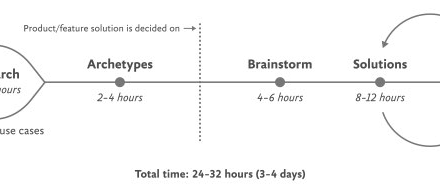Let’s talk about it.
Being part of a Hispanic family, Marisol* said that depression was not something that was discussed at home—depression wasn’t well-understood or acceptable to talk about in her parents’ or grandparents’ generations.
So when she started experiencing depression symptoms, she did what generations before her had done: stayed quiet, even though she privately recognized that there was something going on within her. She learned to live with her symptoms. Until, in her 40s, an unexpected end to a relationship and the weight of being a working, single mother exacerbated her depression symptoms.
“My depression started to take more of a toll on me,” she says. “I had feelings of worthlessness, lost a lot of weight, and I was tired all of the time. I lost interest in things I once enjoyed like hanging out with my friends, felt sad most of the time, and had difficulty concentrating.”
The turning point in her mental health journey happened on a day when she wasn’t feeling well, shortly after her unexpected breakup. That morning, she collapsed. This landed her in the hospital. It was an experience she ultimately saw as a blessing because in addition to the tests conducted to assess her physical health, she underwent a mental health evaluation and was diagnosed with a type of depression called Major Depressive Disorder (MDD).
MDD manifests as a complex set of five or more symptoms, including, but not limited to, depressed mood, loss of interest, difficulty concentrating, excessive guilt, and low energy. However, everyone experiences MDD differently. Only a health care professional can diagnose and treat MDD.
For many people, a health scare could be the worst moment of their lives. For Marisol, she refers to it as the worst and best moment of her life because it pushed her to confront her mental health and seek the help she needed.
Seeking help
The journey to find an MDD treatment plan that was right for her under the guidance of her health care provider took some time and was challenging, Marisol says. After her initial diagnosis, she tried various treatment approaches and began seeing a licensed mental health counselor.
Marisol decided to seek out a Latina psychiatrist thinking she might connect with someone who could better understand her situation and experience.
“My new psychiatrist was incredibly thorough,” she says. “What really stood out to me was her commitment to my well-being. She consistently reminded me of follow-up appointments and took a real interest in my mental health journey.”
Marisol’s psychiatrist took the time to review her treatment options and recommended Trintellix® (vortioxetine), a prescription medication used in adults to treat MDD, which is a type of depression. Trintellix has not been shown to be safe and effective for use in children.
Marisol’s psychiatrist helped her understand what she could expect while taking Trintellix and explained the risks and benefits, like how Trintellix increases the risk of suicidal thoughts and actions in people 24 years of age and younger, especially within the first few months of treatment or when the dose is changed (of note, Trintellix is not approved for use in children).
Scroll below for additional Important Safety Information, including Full Boxed WARNING for Suicidal Thoughts and Actions. Click here for Medication Guide and discuss with your doctor.
Marisol’s psychiatrist also advised her that she should call or get emergency help right away if she has new or sudden changes in mood, behavior, thoughts or feelings, if she develops suicidal thoughts or actions, or if she has or develops symptoms that are new, worse, or worry her.
Along with safety considerations, Marisol’s psychiatrist went over the positive Trintellix results from the clinical trials in adults with MDD. In multiple short-term studies conducted by Takeda Pharmaceuticals and Lundbeck, Trintellix was shown to help reduce the overall symptoms of MDD, based on an overall score on a standardized depression rating scale compared to sugar pill.
Studies also showed that Trintellix had a positive effect on processing speed (how quickly a person can accurately process information) in adult patients being treated with Trintellix for MDD. This is an aspect of cognitive function that may be impaired in adults with MDD. The improvement in processing speed may be the result of an improvement in depression. No studies have been conducted to see whether Trintellix is any better at improving processing speed than other antidepressants.
Marisol’s psychiatrist also said that she shouldn’t take Trintellix if she’s allergic to vortioxetine or any other ingredients in Trintellix, or if she’s taking, or has stopped taking within the last 14 days, a medicine called a Monoamine Oxidase Inhibitor (MAOI), including the antibiotic linezolid or intravenous methylene blue.
While antidepressants are known to be effective based on clinical trials, there are potential side effects of antidepressants, including nausea, vomiting, weight gain, changes in sleep, treatment-emergent sexual dysfunction (TESD), and suicidal thoughts and actions.
The most common side effects of Trintellix are nausea, constipation, and vomiting. Serious potential side effects include serotonin syndrome, increased risk of bleeding, manic episodes, discontinuation syndrome, eye problems, low levels of salt (sodium) in your blood, and sexual problems. These are not all the possible side effects of Trintellix.
For nearly four years, Marisol has been taking Trintellix for her MDD. She says it’s an important part of her journey to help maintain her mental health, in addition to staying connected with her psychiatrist and sharing updates about how she is feeling.
Starting conversations about depression
Virmarie Diaz Fernandez, MD† is a board-certified psychiatrist specializing in providing culturally sensitive and compassionate care to patients, especially those in the Hispanic community. She is not Marisol’s doctor or psychiatrist.
“As a mental health care practitioner and a Hispanic woman who has seen the stigma of depression first-hand, I cannot emphasize enough the significance of fostering open and honest dialogues between patients and health care professionals,” says Dr. Diaz Fernandez. “I have seen many Hispanic women assume the role of matriarch and perceive depression as a sign of weakness. It’s important to me to create a safe space for my patients to feel comfortable sharing their personal experiences. Talking about their symptoms and history helps me tailor my recommendations.”
In Marisol’s community, depression continues to be a sensitive topic, especially among friends and family. “There’s still a lot of stigma surrounding depression,” Marisol says. That’s why she has initiated conversations with her close friends and family about mental health. She encourages them to express their feelings. “It’s vital for people who may be suffering to be able to talk about their emotions and know that it’s okay to seek help when needed,” she says. “This is especially important in our culture.”
She is also open with her coworkers about her MDD diagnosis because she wants to help break the stigma around mental health in her workplace.
Marisol’s advice for someone who is living with depression? “Don’t be afraid to ask questions. Don’t be afraid of what other people think. Talk to a friend or someone you trust. No matter what, they’re going to understand and take you seriously.”
“The prevalent stigma surrounding mental health services creates barriers to well-being,” says Dr. Diaz Fernandez. “It has been my professional commitment to foster a space that encourages and supports the Hispanic community in embracing mental health. It’s important to reinforce that seeking assistance is not a sign of weakness but a courageous step forward.”
To read more patient stories like Marisol’s and get access to other patient resources, visit Trintellix.com.
*Marisol is a paid contributor for Takeda Pharmaceuticals and Lundbeck. Last name withheld to protect personal privacy.
†Dr. Virmarie Diaz Fernandez is a board-certified psychiatrist practicing in Georgia and Florida. She is a paid contributor for Takeda Pharmaceuticals and Lundbeck.
Top Photo: Marisol/W+G Creative
What is TRINTELLIX (vortioxetine)?
TRINTELLIX is a prescription medicine used in adults to treat a certain type of depression called Major Depressive Disorder (MDD). TRINTELLIX has not been shown to be safe and effective for use in children.
IMPORTANT SAFETY INFORMATION
Who should not take TRINTELLIX?
Do not start or take TRINTELLIX if you:
- are allergic to vortioxetine or any of the ingredients in TRINTELLIX
- are taking, or have stopped taking within the last 14 days, a medicine called a Monoamine Oxidase Inhibitor (MAOI), including the antibiotic linezolid or intravenous methylene blue
Do not start taking an MAOI for at least 21 days after you stop treatment with TRINTELLIX.
What should I tell my doctor before taking TRINTELLIX?
Before taking TRINTELLIX, tell your doctor:
- about all your medical and other health conditions
- if you are pregnant or plan to become pregnant, since TRINTELLIX may harm your unborn baby. Taking TRINTELLIX during your third trimester may cause your baby to have withdrawal symptoms after birth or to be at increased risk for a serious lung problem at birth. Tell your doctor right away if you become or think you are pregnant while taking TRINTELLIX
- if you are breastfeeding or plan to breastfeed, since it is not known if TRINTELLIX passes into your breast milk
Tell your doctor about all the medicines you take, including prescription and over-the-counter medicines, vitamins, and herbal supplements, since TRINTELLIX and some medicines may cause serious side effects (or may not work as well) when taken together. Especially tell your doctor if you take: medicines for migraine headache called triptans; tricyclic antidepressants; lithium; tramadol, fentanyl, meperidine, methadone, or other opioids; tryptophan; buspirone; St. John’s Wort; medicines that can affect blood clotting such as aspirin, nonsteroidal anti-inflammatory drugs (NSAIDs), warfarin; diuretics; medicines used to treat mood, anxiety, psychotic, or thought disorders, including selective serotonin reuptake inhibitors (SSRIs) and serotonin norepinephrine reuptake inhibitors (SNRIs); or medicines used to treat seizures or convulsions.
What are the possible side effects of TRINTELLIX?
TRINTELLIX may cause serious side effects, including:
- Serotonin syndrome: A potentially life‐threatening problem that can happen when you take TRINTELLIX with certain other medicines. Call your doctor or go to the nearest emergency room right away if you have any of the following signs and symptoms of serotonin syndrome: agitation; seeing or hearing things that are not real; confusion; coma; fast heart-beat; changes in blood pressure; dizziness; sweating; flushing; high body temperature; shaking, stiff muscles, or muscle twitching; loss of coordination; seizures; nausea, vomiting, diarrhea.
- Increased risk of bleeding: Taking TRINTELLIX with aspirin, NSAIDs, warfarin or blood thinners may add to this risk. Tell your doctor right away about any unusual bleeding or bruising.
- Manic episodes: Manic episodes may happen in people with bipolar disorder who take TRINTELLIX. Symptoms may include: greatly increased energy; racing thoughts; unusually grand ideas; talking more or faster than usual; severe problems sleeping; reckless behavior; excessive happiness or irritability.
- Discontinuation syndrome: Suddenly stopping TRINTELLIX may cause you to have serious side effects including: nausea; sweating; changes in your mood; irritability and agitation; dizziness; electric shock feeling; tremor; anxiety; confusion; headache; tiredness; problems sleeping; hypomania; ringing in your ears; seizures.
- Eye problems: TRINTELLIX may cause a type of eye problem called angle-closure glaucoma in people with certain other eye conditions. You may want to undergo an eye examination to see if you are at risk and receive preventative treatment if you are. Call your doctor if you have eye pain, changes in your vision, or swelling or redness in or around the eye.
- Low levels of salt (sodium) in your blood: Low sodium levels in your blood that may be serious and may cause death can happen during treatment with TRINTELLIX. Elderly people and people who take certain medicines may be at a greater risk for developing low sodium levels in their blood. Signs and symptoms may include headache; difficulty concentrating; memory changes; confusion; weakness and unsteadiness on your feet which can lead to falls. In more severe or more sudden cases, signs and symptoms include: seeing or hearing things that are not real; fainting; seizures; coma; stopping breathing.
- Sexual problems: Taking TRINTELLIX may cause sexual problems. Symptoms in males may include: delayed ejaculation or inability to have an ejaculation, decreased sex drive, or problems getting or keeping an erection. Symptoms in females may include: decreased sex drive, or delayed orgasm or inability to have an orgasm. Talk to your doctor if you develop any changes in your sexual function or if you have any questions or concerns about sexual problems during treatment with TRINTELLIX.
The most common side effects of TRINTELLIX include:
- nausea
- constipation
- vomiting
These are not all the possible side effects of TRINTELLIX. Tell your doctor if you have any side effect that bothers you or does not go away.
You are encouraged to report negative side effects of prescription drugs to the FDA. Visit www.fda.gov/medwatch or call 1‐800‐FDA‐1088.
For additional Important Safety Information, click here for Medication Guide, and discuss with your doctor.
TRINTELLIX is a trademark of H. Lundbeck A/S registered with the U.S. Patent and Trademark Office and used under license by Takeda Pharmaceuticals America, Inc. TAKEDA and the TAKEDA logo are registered trademarks of Takeda Pharmaceutical Company Limited. ©2024 Takeda Pharmaceuticals U.S.A., Inc. All rights reserved. 1-877-TAKEDA-7 (1-877-825-3327). US-VOR-1419v1.0 03/24
Recommended Story For You :

The alpine secret for healthy weight loss

The Most Potent Fast-Acting Formula For Incinerating Stubborn Fat

Real Cortexi Users Real Life‑Changing Results

This Cold Drink Might Trigger Your Prostate

Red Boost is a powerful new formula for boosting male sexual health.

Everything you eat or drink eventually reaches your liver for processing.

Brand New Probiotics Specially Designed For The Health Of Your Teeth And Gums

Empowering You to Take Control of Your Blood Sugar Health!

Scientists Finally Discover the Root Cause of Belly Fat and Unexplained Weight Gain






